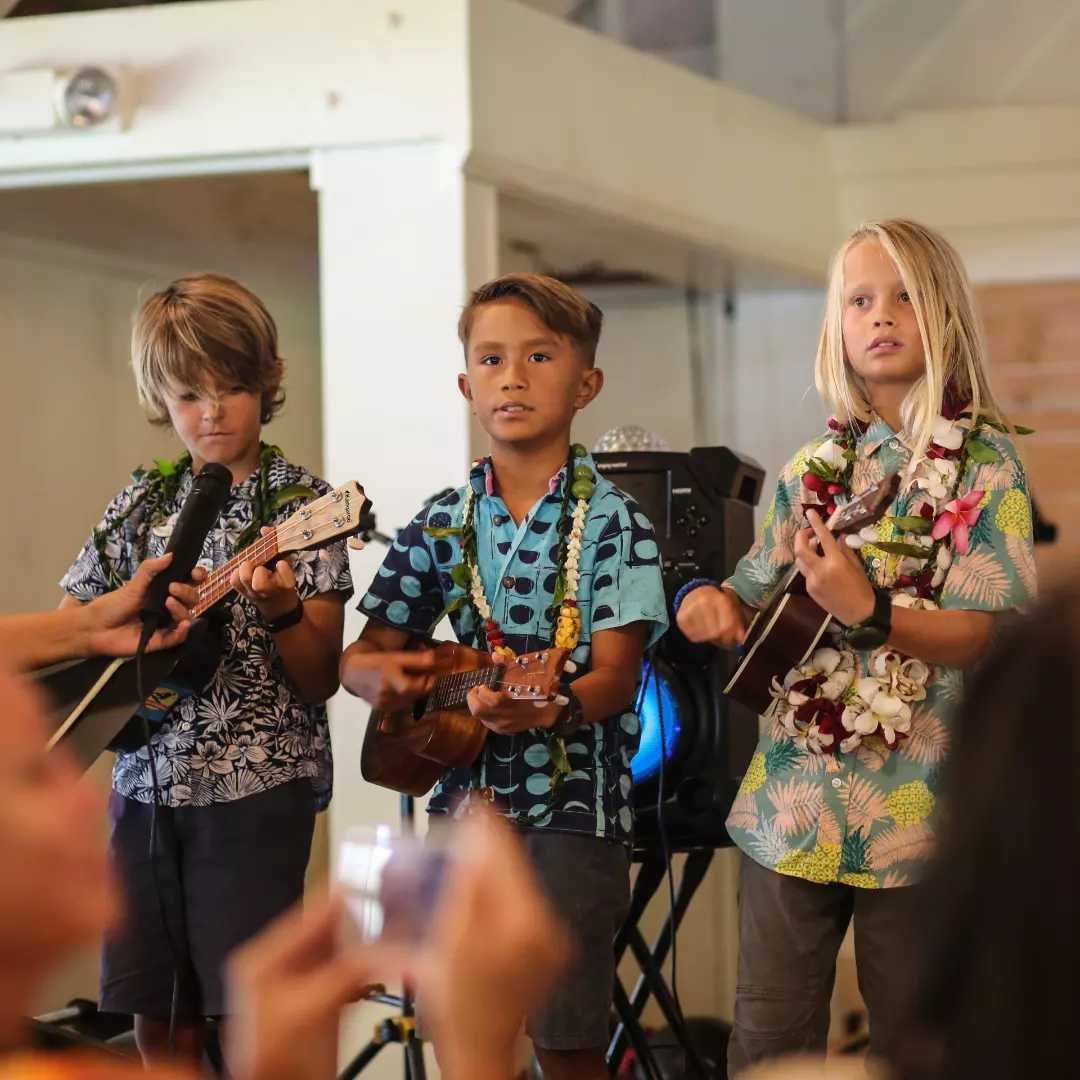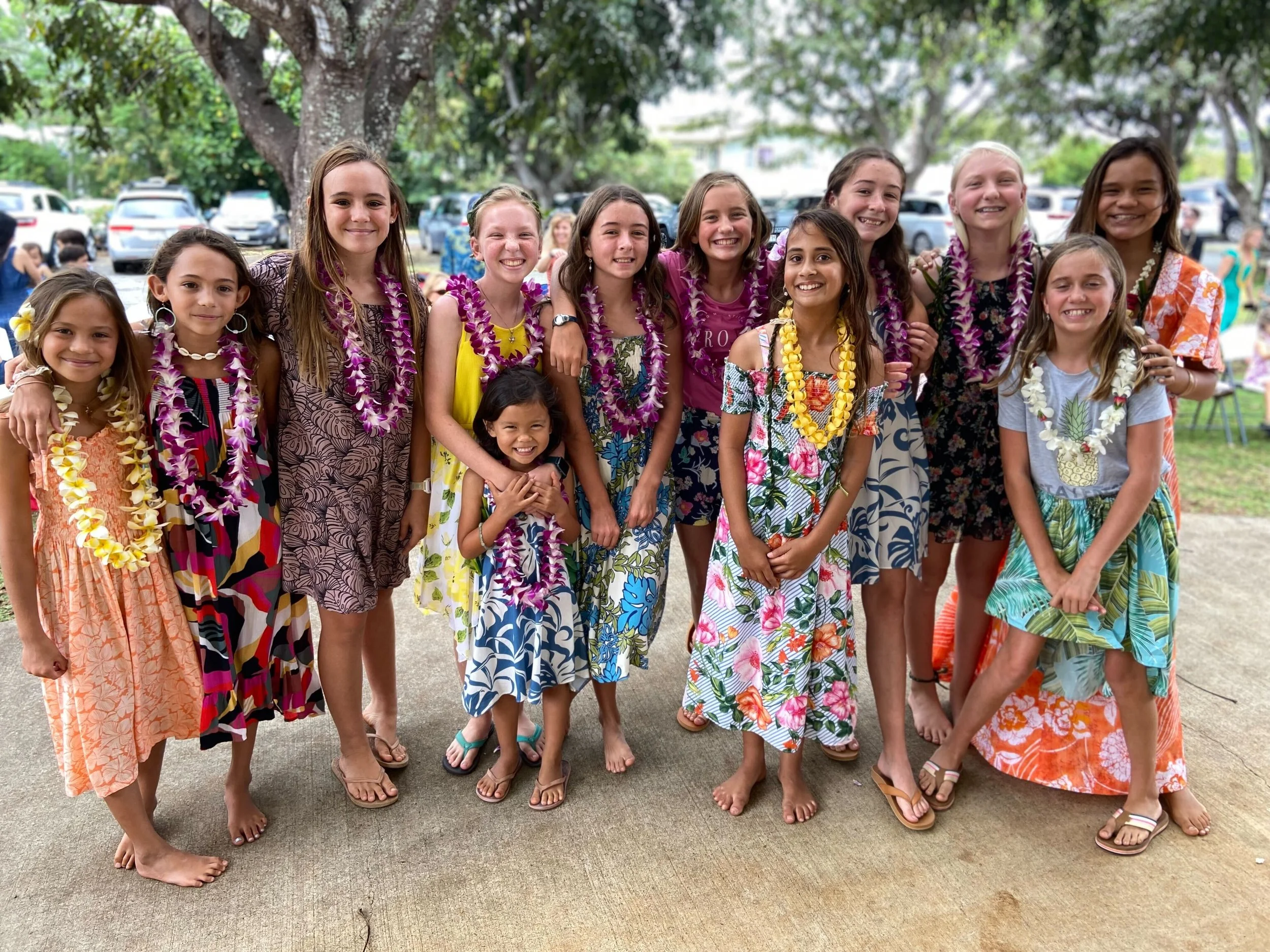
Form Objectives
Form I Objectives
Form I consists of lst-3rd grade students
Form I introduces our students to the wonders of the world and walks alongside these young ones as they form dispositions, sensibilities, attitudes, and categories about the world. This form is the least abstract and most tangible in its approach. We want our Form I students to delight in the books they are beginning to read, find joy in their new abilities and skills, receiving a solid foundation for intellectual habits, and learning self-control and attention through listening and following instructions from their tutors. Special attention will be made in teaching reading and writing, alongside instilling a love for story and curiosity for God’s beautiful creation.
We give a special focus on rooting our students at this age in the culture and world immediately around them here in Hawaii. Their Humanities curriculum focuses on Hawaiian studies- history, culture, dance, chant, mythology, and stories. Their Nature Studies curriculum is focused on exploring and building relationships with the plants and animals that they encounter here in Hawaii. Charlotte Mason believed that a child’s education should focus on what they are aware of, and we implement that idea in our focus on local Hawaiian culture in Form 1 rather than an emphasis on the Classical era, Greek and Roman, culture at this age.
Form I is made up of 6-8 year old students. There is very little homework load for these students during program nights, and work is only given to be done in the mornings of non-program days.
We believe that 40 minute blocks of instruction times are ideal for this age group with two times in the morning to move and be outside (gymnasium and nature studies).
Form II Objectives
Form II consists of 4th-6th grade students
In the upper elementary level, we believe students have the ability to look beyond just what is in their backyard and become aware that they are part of larger societies: the Church and America. We want our Form II students to begin to find their identity as sons and daughters of King Jesus, and not in becoming slaves to popular culture, social media popularity, or video games. We focus these students toward an embodied flourishing that involves books, ideas, art, music, imagination, worship, singing, dancing, etiquette, and feasting.
Form II is made up of 4th-5th grade students. Our Humanities curriculum focuses on American history and literature in these years, with the goal that our students will have a deep love for their Mother Country, while still realizing that she is not perfect. We only assign little-to-no homework for the afternoons on program days, and only assign continuing education work for the mornings of non-program days.
By 5th Grade, students are beginning to become aware of belonging and not belonging. We are not surprised when students begin to experiment with these boundaries as they have “best friends”, try to exclude others, and publicize others’ vulnerabilities. Our children are sinners and it is naïve for parents to believe our children will not make these mistakes. It is our hope and goal at SBH, to have loving and wise tutors and staff to lovingly shepherd these students through these sins, so that they will not make a habit of hiding their sin, but find the joy of a life lived in humility and reconciliation.
Form III Objectives
Form III consists of 7th and 8th grade middle school students
Form III consists of the 7th grade and 8th grade middle school years. In these years, our students begin to individuate and gravitate more toward what they are “good at”, and try to make sense of their place in the larger communities they are a part of. Rather than feeding our students with quips like “Be yourself!”, “Follow your dreams!”, or “You can be whatever you want!”, we seek to direct our students to die to themselves, seek the good of others before themselves, to consider how their gifts, abilities, and talents may be used for the Common Good rather than simply as self-expression.
In these years, students become more aware of the narrative and story that they are part of. We hope that our students will leave our program to enter their high school years with a deep and secure sense of their place in God’s family and his Church, and confident and secure in their relationships with God, their parents, pastors, and teachers. These students crave approval, validation, and encouragement. We want to be lovingly honest with them about their successes and failures. If they are struggling with laziness, we will not excuse them, but call them to perseverance and the satisfaction from hard work.
We do give our Form III students homework in the evenings, and an increasing amount of continuing education work to do at home on non-program days, which we expect they are capable of doing without the constant monitoring of their parents. We hope to gently challenge them beyond their comfort zone and give them confidence that they have the ability to overcome academic challenges.
Early Years Objectives
Early Years Care consists of Kindergarten & Pre-K students
Our Early Years Care program nurtures our youngest children with free time, story time, snacks, outside walks, music, rest time, and crafts.
Kindergarten and Pre-Kindergarten groups will be introduced to gentle academics in the form of All About Reading Level 1 and Pre-reading, respectively, and Writing Without Tears. The children are exposed to classical music, literature, and art, as they cultivate an appreciation for the beauty in the world around them. This occurs in tandem with an developing understanding and appreciation for the unique beauty of the island of Oahu and the plants and animals that share our island home.
Our Early Years Care combines Kindergarten students and Pre-Kindergarten students. Kindergarten students must be 5 years old by July 31. Pre-Kindergarten is exclusively available for children of tutors who are teaching in the program due to Department of Health and Safety laws for childcare of children under 5 years old. For children under 5 years old by July 31st, one parent must be on campus and be legally the primary caretaker.




